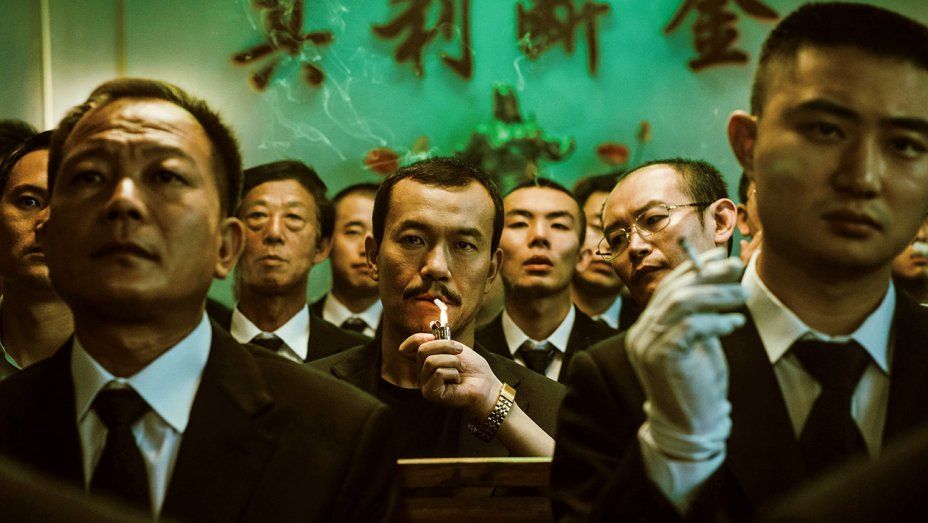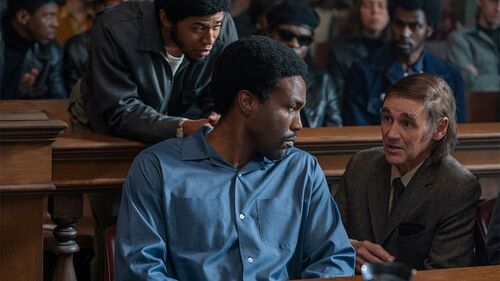
'Ash Is Purest White' review
 Love, crime, and change coalesce into a sprawling feat of storytelling in director Jia Zhangke’s 'Ash is Purest White'. Of the three elements that make up the film, change is the purest, standing the test of the fiery narrative forge Zhangke presents. For as alluring as the criminal underworld gets and as absorbing as the fraught love affair at the centre of the story is, it’s the passage of time that leaves a searing mark.
Love, crime, and change coalesce into a sprawling feat of storytelling in director Jia Zhangke’s 'Ash is Purest White'. Of the three elements that make up the film, change is the purest, standing the test of the fiery narrative forge Zhangke presents. For as alluring as the criminal underworld gets and as absorbing as the fraught love affair at the centre of the story is, it’s the passage of time that leaves a searing mark.
‘Ash’ has three distinct sections, starting in 2001 and running through to 2018. The film’s different time periods and ideas are given cohesion by a stellar performance from Zhao Tao who plays Qiao, a coalminer’s daughter from Shanxi in northern China.
There is an air of odd realism; a sign of things to come, as the film opens in a rumbling bus ride with Qiao’s head bobbing in slumber. We then get this sprawling shot of the mining city of Datong, seemingly lagging behind the urbanisation we see in the horizon. Zhangke is giving us a taste of what is to come; the elements he expects us to think deeply about. But for at least for the next 40 minutes as the film begins to glide with a swagger that had me thinking ‘Goodfellas'.
Minutes in, Zhangke tracks Qiao as she romps through an underground mahjong parlor, only distracted for a short while by a magic act. She returns to course passing a slew obsequious men as she makes way to her boyfriend and boss of a crime brotherhood Bin (Liao Fan). She’s the only woman in the room but appears to have the most power. It's all a facade though as she is ultimately a projection of Bin’s own influence.
Qiao's childlike glee is riveting. Her face is an incredibly expressive canvas for Zhangke to work on as the film unravels. A grin spreads across her face and her beady eyes sparkle as she partakes in some liquor within the testosterone fest. All fun for her it seems. The real power lies with Bin, as evidenced by the way he lays down the law during a debt dispute between two of is men, a dispute that gifts us a sly Chekhov’s gun.
This moment also aligns Bin as some quaint soul fighting to keep older peace-time ways alive. Even after he is attacked in a park as part of some vague turf war, he defies the genre conventions and sits by as Qiao lets the young offenders off with a warning.
But this incursion of youth knows nothing but escalation. First, an older friend in the real estate business Bin tries to help out is stabbed to death. Things come to a head when Bin is attacked by a slew of these rival gang members in the street one evening. It’s a brawl that turns real bloody for Bin and as his head being bashed on the bonnet of his car, Qiao steps in. She fires an unregistered gun to scare off the thugs and ends up spending five years in prison because she refuses to rat out her boyfriend.
All of a sudden Qiao's vibrancy is gone. She seems to age a decade while in prison, worn by time and heartache. As soon as she gets out of prison in 2006, she takes a boat via the Yangtze River (then the scene of the massive Three Gorges project) in search of Bin. On her way, she gets careless and is robbed by the woman sharing her cabin. It’s a small reminder that Qiao only basked in the glow of the Jianghu and snuggled in the warmth of Bin’s shadow.
But in a bid to confront Bin, Qiao really starts to become a Jianghu. She starts small; worming her way into a wedding buffet to satisfy her famished self. She then pulls a ballsy scam in a restaurant for some money. Then to finally get the face to face with Bin she desires, she gets the better of an “okada” rider in thrilling fashion, executing a well thought out plan . We see it in her face as the measured percussion on the score booms and she rides off through the rain, her focus drowning out traces of a smile, towards what would eventually be more heartache.
Time may not heal wounds but it can nurture ambition and power. We hit 2018 and Qiao, like China on the global stage, is no longer a pretender. She has settled back in Datong and seems to be the sole force flying the banner of the Jianghu in what, at times, feels like an act of futile resistance and at other times a longing for the old way of life.
It’s Zhangke’s fascination with time in ‘Ash’ that makes it such a thoughtful film experience brimming with some sociological curiosity. I found myself pausing to think about what storms time wreaked in my society as it is the ultimate force here; displacing love, power, tradition, architecture and more.
I found Zhangke’s subdued direction to be quite exquisite. Take out the pop and anachronistic razzmatazz in the first act, which dropped Finzi Contini’s groovy Cha Cha Cha into my life, and we find that he is overseeing a slow patient film more interested in giving us time to wring out meaning from each frame. 11
He even spares some time for the surreal. There is a bizarre Fargo Season 2 moment with a mysterious flying object that gives odd context to a moment of painful vulnerability earlier on. There is a temptation to overthink this moment that is at odds with the social realism but all that matters is that it brings comfort to our heroine when she’s at her darkest point.
‘Ash’ looks great and features the most picturesque use of smoke, whether from numerous cigarettes or sticks of incense, I can remember seeing on screen. It's all but part of the set design giving a real tactile sense to the feel of the film.
There is some absorbing framing in the scene with the volcano in the backdrop as Bin explains the metaphor captured in the film’s title, a metaphor she will soon come to embody.
There’s a warm empathy with which Zhangke films people trying to connect; people ultimately doomed to loneliness, like Qiao's encounter with an outwardly gregarious but desperately sad stranger on a train. And it’s moments like this that make you wonder if Zhangke wanted the love story to bear more fruits with audiences.
But by the end, it’s the transformation of a society that resonates, which was an overwhelming surprise for someone looking for a pulpy Chinese gangster flick.


